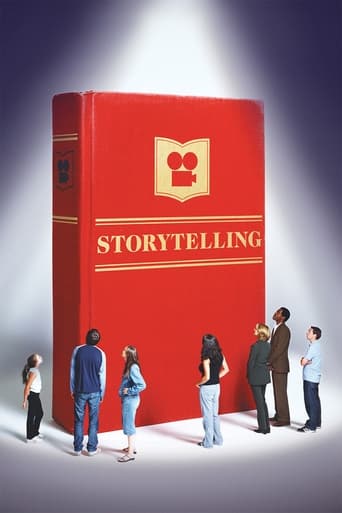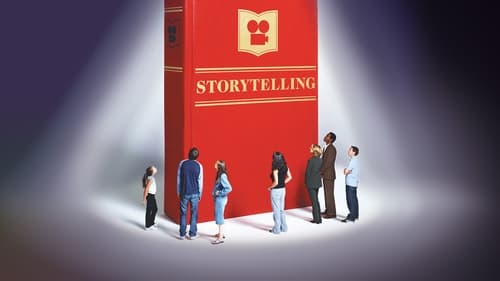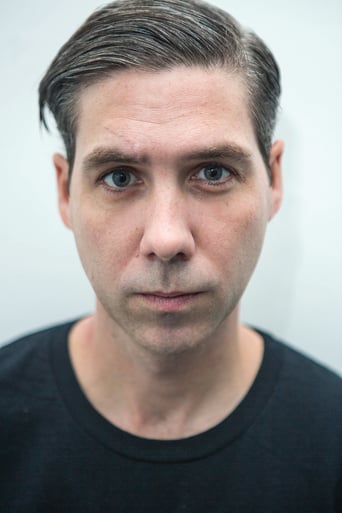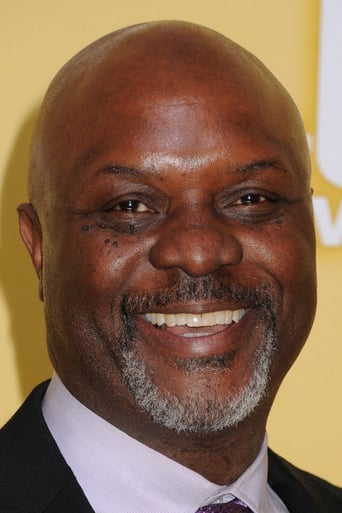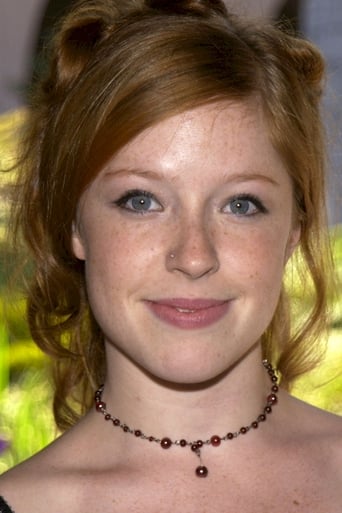Protraph
Lack of good storyline.
Cleveronix
A different way of telling a story
Doomtomylo
a film so unique, intoxicating and bizarre that it not only demands another viewing, but is also forgivable as a satirical comedy where the jokes eventually take the back seat.
Myron Clemons
A film of deceptively outspoken contemporary relevance, this is cinema at its most alert, alarming and alive.
Adam Gai
Todd Solondz's Storytelling could be looked at as a film about film (the second part),and a film about fiction in general both parts). The first part named precisely Fiction tells the misadventures of a young couple studying creative writing at the University. Marcus, a brain damaged, and Vi, his girl friend, seem to be dragged by their sexual drives when composing their texts.He will read in the writing class a story about an invalid proud of his handicap (a sweetend narrative about his own situation). The text being reported will be deadly criticized by their implacable teacher, a black who was winner of a Prize Pulitzer. Vi's eventual sadomasochist affair with the same teacher gives her material for her next writing exercise, which would also suffer appalling remarks.She is convinced it is a good story, merely because based on true facts. The judgments by the writing pals hardly hide their own superficiality and clichés. The teacher, on his side, exploits his evaluating skills to refer indirectly to his own depraved relation with her. Creating fiction serves to settle one's account with somebody. What characters say and do, lacks, more often than not, correspondence with what they think, and in many cases they are unable to grasp the absurdities of their statements. In the second part, named Non-Fiction, Fern Livingston, the mother in the Jewish middle-class family, argues and believes that she and her off-springs are virtual victims of the Holocaust, notwithstanding her parents had emigrated from Europe before it. Scooby the supposed rebel in the family, who repels going to study at the University, dreams about becoming a television talk- show celebrity and is steady convinced of his talents: "I'm not an idiot man, I watch TV" (Could it be that most of the spectators wouldn't easily endorse this assertion). Cynical dialog reaches high tops in the scene, wherein Mickey, the infatuated youngest son in the family, asks the housemaid what it's the meaning of rape. She answers: "It is when you love someone and they don't love you and you do something about it". Solondz draws a ferocious caricature of American people, blacks, whites, rich, poor, adults and children, who are puppets of their ignorance, prejudices and wickedness, and live their fantasies as indisputable facts. Also the amateur director in the story, who decides to shoot a documentary movie about Scooby experiences at the High School, and considers himself to be an objective witness of reality, seems not to be aware of his unscrupulousness. When the boy uncovers his hypocrisy: "You are a pervert", Toby, the director, denies it, without pondering the dangerous implications of his reply: "No. Actually, I am a documentary filmmaker". The spectators could willingly fall prey of this Solondz's juicy, sardonic, grotesque tragedy in two episodes, like flies trapped in an attractive but sticky mass. The hypnotic musical theme accompanying the initial credits paves the way to. Adam Gai
william-t-archer
Storytelling is an interesting film because it's largely a critique of how Solondz approaches his work. As the title says, the movie is all about the way he tells his stories. Most of the negative criticism of Happiness focused on the perceived smugness and harshness of the directorial viewpoint, the sense that Solondz was looking down on his characters and mocking them for not being as smart or as sophisticated as he was. I never thought that criticism was accurate: for one thing, I felt that Solondz brought out the characters' pain and emotional torment, especially the torment of the father, far more than most conventionally "sympathetic" directors do. But Storytelling takes the critiques of Happiness seriously and places them right at the center of the film. In the "Fiction" part of the movie, Solondz shows us the complexities of people trying to understand and exploit each other's motives and desires. If his vision of the Selma Blair character is merciless in exposing her pretensions and hypocrisies, it's also equally unblinking in portraying her moving attempt to find her own viewpoint in a situation that turns her against herself in the cruelest way imaginable -- by making her feel responsible for her own degradation. Just as strikingly, the film's second segment, "Nonfiction," shows an art-house audience laughing smugly at the family on display: a pitch-perfect version of how many audiences reacted to the family in Happiness. At the very least, Storytelling shows that Solondz has thought deeply about his satirical method. While his films will never be for everyone's taste, I think this movie demonstrates that he approaches his subjects in good faith, with an artist's desire to deepen our concern for each other by facing squarely and honestly some of our worst qualities.
mmara08
Now from reading the trivia provided by IMDb, it can be learned that their was originally going to be three stories. After learning this, I can somewhat understand the format of movie the director was going for. However, having only two stories (which are disproportionate in the amount of time spent on them) is completely distracting because you find yourself looking for the parallel between them. The theme was their but that wasn't enough. If Solandz would have just pulled one character from the first story and show a glimpse of them in the second, I would have found the movie a lot smoother around the edges. Since he did not do this, I am forced to evaluate the second part of the film more due to the time spent on it as well as plot development.Format aside, I loved the second part of storytelling. All characters are lovable and easy to relate to, especially Scooby. Scooby represents a normal teenager trying to find his own with many confrontations with his parents. So much so, that he can almost be looked at as a theme more than as a character. The portrayal of the oldest, middle, and youngest child is dead on. Parents are a cliché but it only adds to the plot. *SOMEWHAT SPOILER* The beginning shot of the director makes you sympathize him which then leads you to trust his intentions. Everyone, even the viewer, is betrayed by his depiction of the family. The movie ended perfectly, as there was nothing else that could be said or done and I give props to Solandz for being able to leave it perfect and raw.
oliverblaha
The film could seem to some "commercial-spoiled" young pubertal teenagers as boring, but precisely patience is the key to this piece. When being brought in to the story with a fantastic piece of directing, you will agree with every single bit of these 2 stories. The first story - "Fiction" may not be as realistic, just as the name could hint you, but shows that world full of prejudice may have a reason. The afro-American storywriting teacher is in our eyes a negative character, but does not come out as positive, but dives even deeper.And the 2nd story is the most heart touching and fascinating part of this film. A story of a boy from a classical American suburb, turns his own family upside down with the most discussed matter in the world - homosexuality. He becomes part of a documentary, which was supposed to show a normal American family, but turns out to be a laugh to naivity of all Americans.
